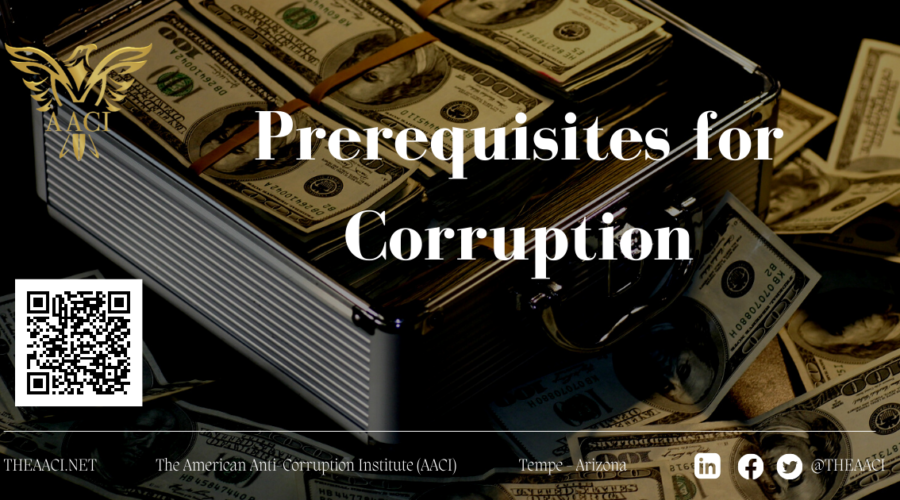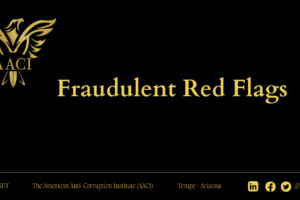June 20, 2022
Technical Staff
Corruption is a social evil that affects the lives of many people around the world. It deprives citizens of their fundamental human rights and undermines democratic processes and institutions. Corruption results from deliberate actions or failures to act on behalf of an individual, group, organization, or system to gain an advantage for oneself or another person. The motives of the culprits vary, but the common denominator is always self-interest. However, the culprit commits a corrupt act when he believes he can do it and get away with it.

Corrupt conduct requires significant planning on the part of the perpetrator. He must be familiar with the system and have a clear strategy for navigating it. He must be cunning, calculated, and self-assured in his ability to carry out the dirty deed undetected. In many cases, corrupt conduct is preceded by considerable planning and scheming. To create the essential conditions for their desired conclusion, the perpetrators may even fabricate documents or make false assertions.
Management collusion, insufficient internal control, governance failure, ineffective and/or partial judiciary, corruption in vital professions such as public accounting and law, and regulator ineptitude are all serious indicators of corruption. Corruption is more likely to thrive when two or more of these variables are present.











































